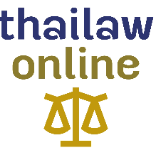Usufruct In Kuchinarai - First Time Ever
-
Recently Browsing 0 members
- No registered users viewing this page.
-
Topics
-
-
Popular Contributors
-
-
Latest posts...
-
12
Community French Father Overjoyed as Tourist Police Reunite Him with Lost Son on Koh Phangan
That's more of a long term life goal. "Piano player in a whorehouse" adjacent. -
155
Health Thai Activist Proposes Sex Ban for Under-22s to Tackle HIV Surge
You comment is irrational and illogical, why are you fixated on 60 - 80 year old...you are one strange animal. And why would they "have" to move out of Thailand....strange...very strange. Let's see you explain your comment. -
15
Mobile banking app
It's happening to most people, but only affects mobile banking, not your whole account. I've had the same Bangkok Bank account and the same DTAC phone number/SIM since 2006, yet I still had to get confirmation of my SIM account from DTAC and then take it to my branch for them to unlock my mobile banking. 30 minutes of wasted time, but done now. -
521
Will there ever be a safe vaccine?
No debate possible when you're fixated on theories (postulates to you) that were superseded by later discoveries. All you've presented is denial, denial, denial of anything other than untested thought experiments from the 1880's. Go back to contemplating your navel. -
12
Community French Father Overjoyed as Tourist Police Reunite Him with Lost Son on Koh Phangan
He may have intended earning money by working in the bars ? -
44
Have You Met Foreigners in Thailand Who Talk Big, But Live Small?
You get them in every country not just Thailand
-
-
Popular in The Pub


.thumb.jpeg.d2d19a66404642fd9ff62d6262fd153e.jpeg)












Recommended Posts
Create an account or sign in to comment
You need to be a member in order to leave a comment
Create an account
Sign up for a new account in our community. It's easy!
Register a new accountSign in
Already have an account? Sign in here.
Sign In Now